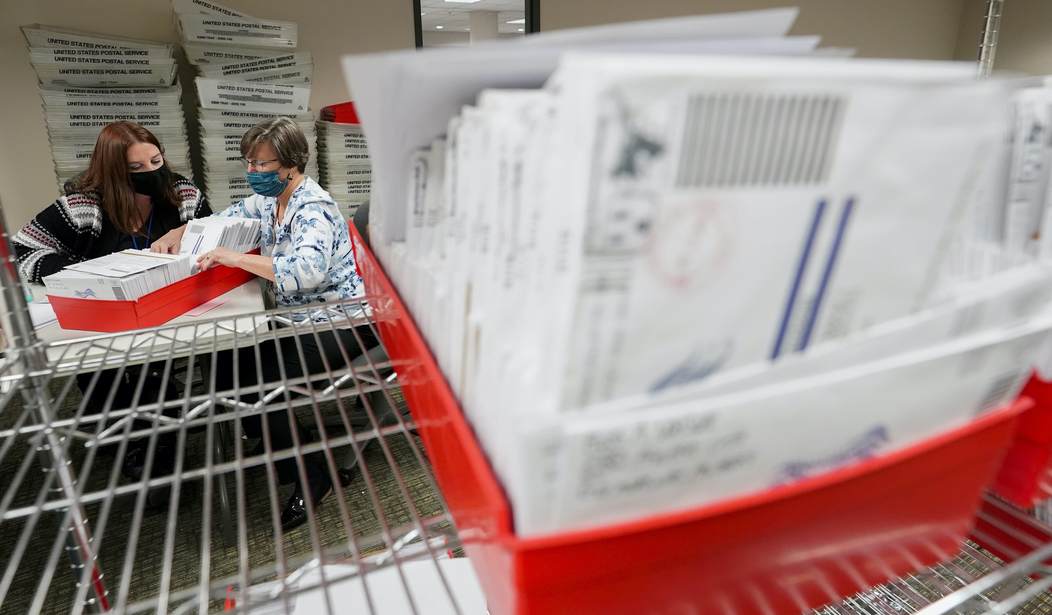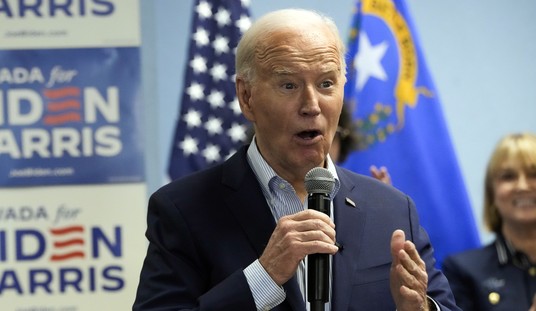Yesterday several Pennsylvania Republican Party officials and individual Republican voters filed a lawsuit in state court seeking to obtain declaratory and injunctive relief based on a claim that the legislation which adopted “no excuse” eligibility for absentee voting was an illegitimate amendment of the Pennsylvania State Constitution.
The Plaintiffs are Mike Kelly, a GOP member of the U.S. House of Representatives from the extreme northwest corner of Pennsylvania; Sean Parnell, a GOP politician who lost his race for the US House in a suburban Pittsburg District; Wanda Logan, a GOP politician who lost her race for Pennsylvania State House in Philadelphia County; and five other individual voters from various Pennsylvania counties. The defendants are the State of Pennsylvania, the Pennsylvania General Assembly, Tom Wolfe, the Governor of Pennsylvania, and Katherine Boockvar, the Secretary of the Commonwealth.
The Pennsylania Legislature passed, and Gov. Wolf signed, Act 77 which included amendments to Pennsylvania election laws — including a provision that expanded the availability of absentee voting on a “no excuse” basis.
Here is the issue as presented by the Complaint — the Pennsylvania Constitution sets forth the basis upon which voters (“electors”) may cast an absentee ballot, and Act 77 did not “amend” the State Constitution as has been done in the past when changes were made to the Absentee Ballot provisions. Section 14 of the Pennsylvania Constitution Reads:
Sec. 14. Absentee voting.
(a) The Legislature shall, by general law, provide a manner in which … qualified electors who … are unable to attend at their proper polling places because of illness or physical disability … may vote, and for the return and canvass of their votes in the district in which they respectively reside.
The Complaint alleges that the Pennsylvania State Constitution requires in-person voting, and the only recognized exception to this requirement is the options reflected in Sec. 14, which were added to the Constitution via the accepted Amendment process in 1967. Sec. 14 sets forth four specific bases for a qualified voter to cast an absentee vote under the Constitution: 1) the voter will be absent from their municipality because duties, occupation, or business needs require them to be elsewhere; 2) illness or physical disability; 3) observance of a religious holiday, and 4) due to status as a county worker.
Act 77 did not follow the procedure for amending the Pennsylvania State Constitution as set forth in the Pennsylvania State Constitution. That process requires that such proposed Amendments pass both houses of the Pennsylvania Assembly by majority vote in two consecutive legislative sessions. The provisions of the proposed Amendment must then be published for three months in two newspapers in each county. Finally, the provisions must be approved by a majority of electors in the next general election.
Recognizing that there was no basis in the Constitution to support “no excuse” mail-in balloting, at the same time the Pennsylvania Legislature approved Act 77, it also initiated the process for Amending Sec. 14 of the Constitution to accomplish that purpose. However, neither Act 77 nor the simultaneously proposed amendment were ever passed by a majority vote of the Legislature in two consecutive sessions, and neither was ever approved by a majority of voters in Pennsylvania in a general election.
The first bill proposing a “no excuse” absentee voting amendment to Section 14 was introduced in the Pennsylvania Senate in January 2019 — more than one year before the COVID-19 pandemic. It was introduced as a Joint Resolution for the purpose of amending the Pennsylvania Constitution. This bill passed in October 2019, and was sent to the Pennsylvania House.
That Senate bill was amended by the House, and both the Senate and the House passed the amended version on April 29, 2020 – after the COVID-19 pandemic had begun. But before a proposed Constitutional Amendment can be submitted for approval by the voters, it must be passed by both houses of the Assembly in two consecutive sessions — and that has not happened. Only after that happens can it be placed on the ballot of a general election for approval by the voters.
The text of the proposed amendment struck out the four enumerated grounds for absentee voting and added a sentence at the end stating that no law passed pursuant to that provision could require a voter to be personally present at a voting location.
At the same time the first Senate bill was approved in October 2019, both houses of the Assembly adopted Act 77, and Gov. Wolf signed it into law. The State officials then proceeded to carry out the provisions of Act 77 as if they were not an amendment of the Pennsylvania Constitution at all, and then followed those procedures in the recently completed general election — procedures which violated the current Pennsylvania Constitution.
The plaintiffs seek a declaratory judgment from the Court that Act 77 was void from the outset to the extent it was used by the State to violate the Pennsylvania Constitutional limitations on absentee voting, and ballots cast in reliance on Act 77 are invalid.
There are some additional nuances to the argument made in the complaint, but I’ll reserve commenting on those until we see what Court proceedings result in the days ahead.
If you think the complaining about the remedy sought by the Trump campaign in the federal case was wild, wait until the Democrats and media start screaming about this case if it generates any traction.

















Join the conversation as a VIP Member